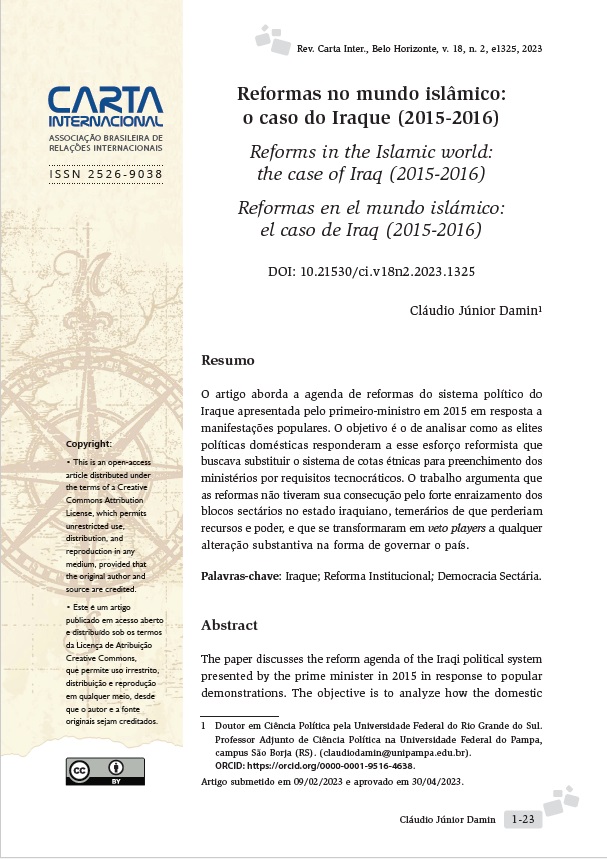Reforms in the Islamic world
the case of Iraq (2015-2016)
DOI:
https://doi.org/10.21530/ci.v18n2.2023.1325Keywords:
Iraq; Institutional reform; sectarian democracyAbstract
The paper discusses the reform agenda of the Iraqi political system
presented by the prime minister in 2015 in response to popular
demonstrations. The objective is to analyze how the domestic political elites responded to this reformist effort that sought to replace the system of ethnic
quotas for filling ministries with technocratic requirements. The work argues that the
reforms were not achieved due to the strong rooting of sectarian blocs in the Iraqi state,
fearful that they would lose resources and power, and that they became veto players to
any substantive change in the way of governing the country.
Downloads

Published
How to Cite
Issue
Section
License
Copyright (c) 2023 CLÁUDIO JÚNIOR DAMIN

This work is licensed under a Creative Commons Attribution 4.0 International License.
Authors who publish with this journal agree to the following terms:
- Authors retain copyright and grant the journal right of first publication with the work simultaneously licensed under a Creative Commons Atribuição 4.0 Internacional that allows others to share the work with an acknowledgement of the work's authorship and initial publication in this journal.
- Authors are able to enter into separate, additional contractual arrangements for the non-exclusive distribution of the journal's published version of the work (post it to an institutional repository or publish it in a book, for example), with an acknowledgement of its initial publication in this journal.


